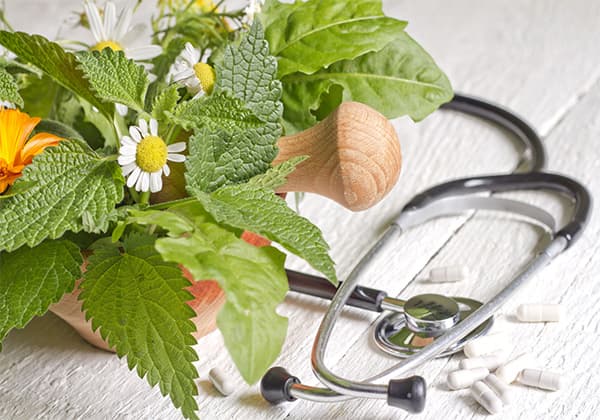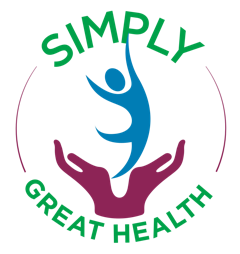We are sharing a list of simple steps you can take at this time to take care of yourselves and your loved ones (Thanks to Gould’s Apothecary’s (TAS) for some of this information)
This list of suggestions has been compiled with the intention of providing you with some simple steps for actions you can take at home, or recommendations for things that you can access fairly easily. Please Note these treatments have the potential to support your general health and immune resilience, but to be clear, none of them have any proven action in preventing or treating coronavirus infection.
Of Course No 1. regularly wash hands with warm soapy water and practice good coughing and sneezing hygiene.
Garlic
Eat plenty of raw crushed GARLIC. It doesn’t matter if you smell, it will help with our social distancing protocols and we can all have garlic breath together! Garlic is one of nature’s best antimicrobials, and it is quite amazing in that it appears to be selective in its action – it doesn’t wipe out your good bacteria. You don’t necessarily have to chew it but can cut into small pieces and swallow. However ensure you are eating the raw garlic according to your own tolerance as not everyone can stomach it. You can also add crushed garlic to a meal just before consuming it, or having it with avocado on wholesome bread, this may help its improve tolerability. Local organic garlic is best if you can access it, but don’t worry if you can’t – eat what you can find.
https://www.ncbi.nlm.nih.gov/pubmed/?term=PMC4103721
Green Tea
Gargle and drink GREEN TEA. Consuming green tea, in particular gargling it, has been shown to reduce the risk of contracting influenza and the common cold. The tannins in green tea have been shown to have broad antiviral effects topically. In one study, residents in an aged care facility gargling the equivalent of ½ cup of green tea three times daily were more than 15 times less likely (OR 15.7) to catch the flu https://www.ncbi.nlm.nih.gov/pubmed/?term=16970537
Honey and Lemon
Don’t forget the good old fashioned honey and lemon drink if starting to feel unwell, it has possible medicinal benefits and is a comforting drink when feeling under the weather. The use of honey for fighting infections dates back to ancient times. Honey especially the active Manuka honey may have antimicrobial, antibacterial antioxidant properties.
https://www.ncbi.nlm.nih.gov/pmc/articles/PMC5424551/
For extra kick add a little freshly grated ginger. Anecdotal evidence suggests ginger may have some antiviral activity.
https://www.ncbi.nlm.nih.gov/pubmed/23123794
Vitamin D
You may like to consider taking a Vitamin D supplement. Even though we have had a beautiful summer full of sunshine, we do tend to slip, slap slow to help prevent skin cancer and so our vitamin D levels may not be optimum. A number of studies have shown that taking vitamin D, particularly in people who are vitamin D deficient, reduces the chances of developing acute respiratory infections including influenza. Most studies reviewed used adult doses ranging from 2000IU to 4000IU a day, which is known to be safe to take long term even in the absence of deficiency https://www.ncbi.nlm.nih.gov/pubmed/?term=30675873
Probiotics and Probiotic Foods
Eat probiotic foods daily. Consuming probiotic foods regularly such as kefir, kimchi, sauerkraut, a probiotic yoghurt (want to have low sugar) or taking a probiotic supplement has been shown to reduce the risk of developing an upper respiratory tract infection. All of these can be consumed daily.
https://www.ncbi.nlm.nih.gov/pubmed/?term=25927096
Nutrition
Eat nutritious foods, this is a great time to aim for a rainbow coloured plate of fruit and veg. The different colours contain different phyto nutrients that can support our immune system. Perhaps consider then increasing your plant based foods, including nuts and seeds, fruit and vegetables as these also help to feed your beneficial gut bacteria, which will assist you with immune resilience along with helping to ensure you have a healthy intake of vitamin C and other nutrients important for immune health.
Cut down on processed foods especially those containing damaged fats (hydrogenated) and sugars. These negatively impact your overall health and immune system. Don’t overindulge with alcohol. Binge drinking is bad for your gut flora, and also impairs immune function and increases the severity of respiratory tract infections
https://www.ncbi.nlm.nih.gov/pmc/articles/PMC4590612/
Cosy Home
Keep your home above 16°C, which is especially important in the winter months. Having a cold home reduces respiratory resilience and increases susceptibility to and mortality from respiratory tract infections. This is especially important for people who are elderly, asthmatic or have other chronic/recurrent respiratory conditions.
http://www.instituteofhealthequity.org/…/the-health-impacts…
Basic Health Guide
- Get enough sleep
- Maintain a healthy exercise regime (can be done at home, put on some favourite music and dance around the room as if no one was watching you)
- Try to keep stress levels in check (try meditating, and belly breathing exercises)
- Eat well
- Find three things to be grateful for each day
- Find Something to laugh at each day
 Keep any medicines you regularly use in stock and within date. This includes pharmaceuticals (check your scripts are also in date), herbal remedies and nutritional supplements. If you need extra advise on supplements and Herbal remedies get in touch with us at Simply Great Health (09 4444527)
Keep any medicines you regularly use in stock and within date. This includes pharmaceuticals (check your scripts are also in date), herbal remedies and nutritional supplements. If you need extra advise on supplements and Herbal remedies get in touch with us at Simply Great Health (09 4444527)
If you do get sick, don’t panic, most people will experience mild symptoms but please minimise your contact with other people, and follow the guidelines about self-isolation, this will help protect the more vulnerable members of our community. Follow Ministry Guidelines https://www.health.govt.nz/our-work/diseases-and-conditions/covid-19-novel-coronavirus
Finally as our Prime Minister keeps reminding us Be Kind to One Another, look out for friends, family and especially our older generation.


